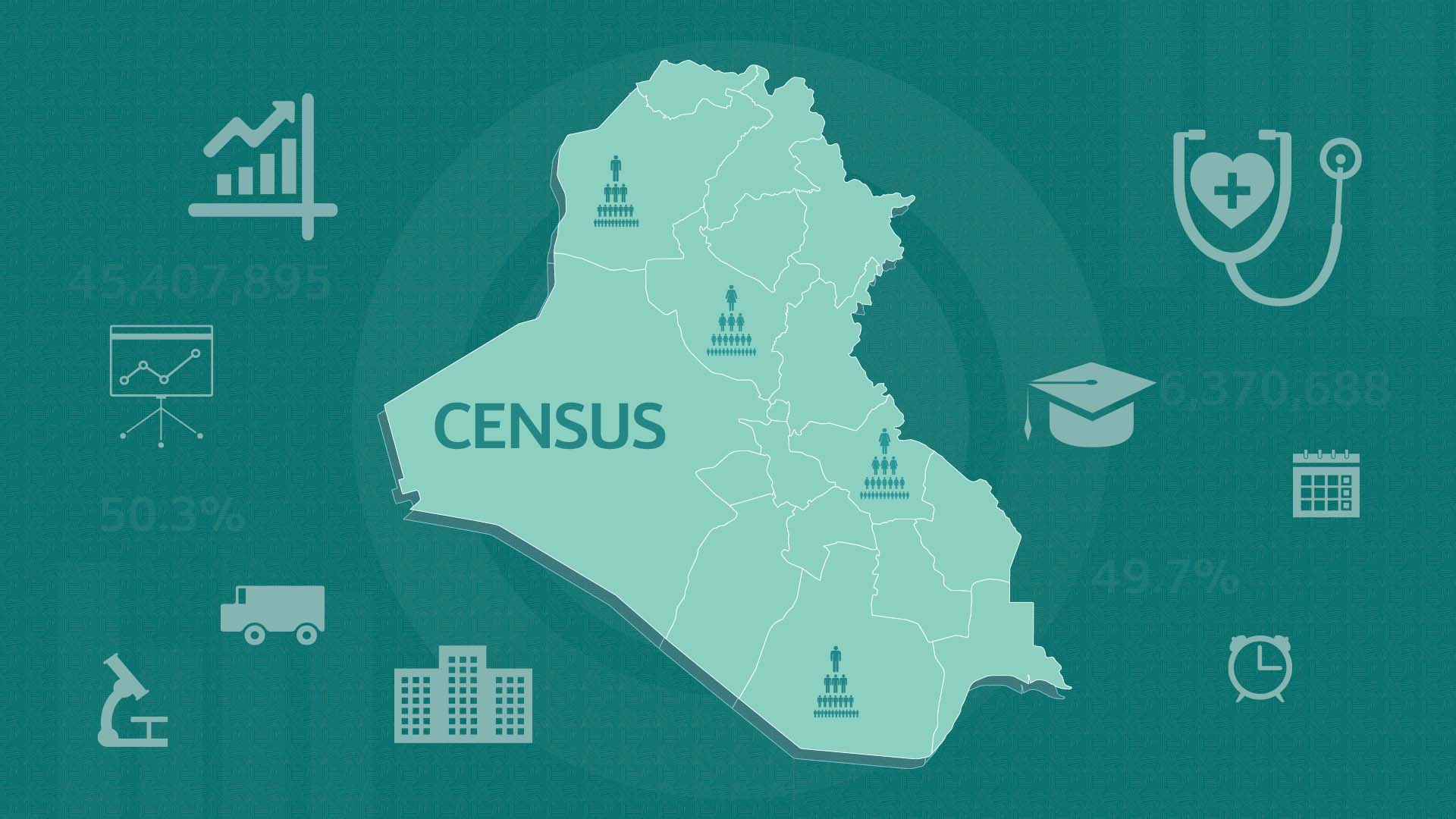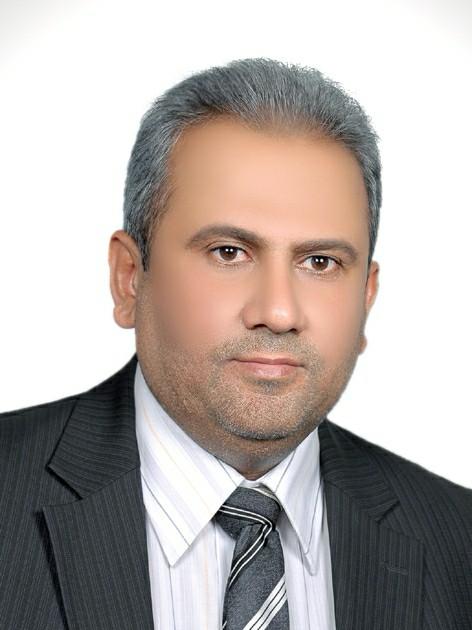Overview
After 27 years, Iraq finally conducted its population census on November 20, 2024, with the third phase still pending. During a press conference, the Iraqi Prime Minister stated, "The population of Iraq has reached 45,407,895 people, including refugees and foreign residents."
However, on the same day, the High Commission for Human Rights in Basra reported that the census had yet to be conducted in certain areas of Basra province.
Contents of Population and Housing Census Forms
The Board of Statistics and Geographical Information has published the 2024 Iraqi Population and Housing Census form in three languages: English, Kurdish (Badini and Sorani), and Arabic.
The form comprises over seventy detailed questions spread across twelve lengthy pages, making it time-consuming to complete. However, many respondents reported being asked only basic details such as their names and ages, without providing additional information, including data on housing type and ownership status.
The form also includes detailed questions, such as items 216 to 223, which inquire about physical disabilities, including vision, hearing, mobility, cognitive understanding, forgetfulness, and use of fingers. Question 208 includes records for the non-Iraqi population.
Although there are questions regarding religion—possibly aimed at determining the size of various religious communities—the form does not address issues of ethnicity, language, or sect, as these factors do not impact the right to citizenship. Furthermore, while there is a section on asylum, it appears to have been largely ignored during the census process.
Some questions on the form have raised eyebrows, such as question 204, which asks about the relationship of the person living in the house to the landlord, offering options such as servant, driver, or security guard. Critics argue that such classifications are inappropriate, as these individuals are citizens with their own families who should be registered as part of their family units rather than being categorized based on their occupations.
Importance of Population Census
The population census serves as a fundamental basis for economic and social development planning. All decisions and plans rely on accurate population numbers and data. Access to comprehensive population information is essential for identifying the population's needs and ensuring equitable resource distribution, leading to:
- Improved basic services, such as education, healthcare, and infrastructure.
- The development of data-driven plans and precise figures for investment projects.
- The formulation of public policies that promote social and economic justice across all segments of society.
In Iraq, a country with complex political and social dynamics, the census is more than just a data collection exercise. It reflects the internal state of affairs and the government's ability to execute major projects transparently and accurately. However, for a census to be successful, it requires a stable political and social environment.
This raises the critical question: Was the timing appropriate for conducting this census?
Obstacles to the Iraqi Population Census
Security and Political Obstacles
The census in Iraq is not merely a statistical exercise; it carries significant political implications related to the distribution of power and wealth among communities. Conflicted areas, particularly between the central government and the Kurdistan Region, posed major challenges. Some questioned the impartiality of the process, while others suspected it was an attempt to alter the demographics of certain regions.
Tensions in the Political Environment
Census data is a critical tool for allocating political positions and budgets among communities. However, Iraq's current political divisions make it difficult to ensure the fair and effective use of these data. Disputes among political forces, rooted in census outcomes, further complicate the situation.
Security Tensions
Certain areas suffer from unstable security conditions, hindering access and affecting the accuracy of data collection.
Transparency and Trust Issues
The census has faced widespread criticism over its transparency. A lack of trust between citizens and government institutions has led to reluctance among some to participate or provide accurate information. Additionally, fears persist among citizens that the government might misuse the data collected.
Lack of a Clear Post-Census Plan
Without a strategic plan to utilize the data, there is a risk that the figures will remain unused and serve no practical purpose.
Technical and Administrative Challenges
- Lack of Strategic Planning: Since 2003, successive Iraqi governments have failed to adopt a clear population policy, resulting in an absence of long-term strategies to address rapid population growth.
- Technical Capacity: Limited resources and administrative inefficiencies further hindered the effective implementation of the census.
Retreat of Collective National Identity
The lack of a unifying political or cultural discourse promoting national identity has been replaced by sectarian and ethnic sub-identities. This has deepened mistrust between communities, fueled fears of data manipulation, and cast doubts on the accuracy of the census.
Opportunities to Benefit from Census Data
Some perspectives view the census process as a positive step, offering the following opportunities:
- Refocusing on the Importance of Planning:
The census could mark the beginning of a culture of long-term planning. While it may initially present challenges, it can help highlight the need for data-driven decision-making. - An Opportunity to Restore Trust:
Despite skepticism, publishing accurate and widely accepted results can help rebuild trust between citizens and the government. - Addressing Urban vs. Rural Growth:
Understanding population distribution provides valuable insights into managing urbanization, as urban areas continue to grow more rapidly than rural regions. - Motivation for Administrative Reform:
Challenges encountered during the census process could serve as a catalyst for administrative reforms, encouraging the state to improve the efficiency and effectiveness of its institutions.
Conclusion and Recommendations
To maximize the benefits of the census results, attention should be directed to the following points:
Strengthening National Identity in Public Discourse
Multi-structural countries face significant challenges in fostering an inclusive national identity. Iraq, as a country marked by sectarian and ethnic diversity, continues to grapple with competing sub-identities that often overshadow the broader sense of national unity. During the census process, concerns were raised about attempts by certain groups to manipulate the data, highlighting vulnerabilities in national cohesion and fears of politically motivated distortions of the results.
Continuous Data Updates
Censuses should be conducted regularly, for instance, following the formation of any government. This practice will enable those involved in the process to enhance their skills, promote a culture of census-taking within the community, and ensure the collection of accurate data. To minimize costs, support can be sought from civil society organizations, volunteers, teachers, and police. Additionally, conducting the census on weekends, rather than suspending official work, as was the case this time when work was halted for two days across Iraq and three days in most provinces, can further streamline the process.
Promote Transparency and Trust Between the Public and State Institutions
Enhancing transparency and public participation is essential for the success of the census. Without addressing fundamental issues of data reliability and consistency, the census risks becoming a tool for perpetuating existing inequalities rather than a step toward progress. Urban planning strategies informed by accurate population data should also be developed to address the needs of the population effectively.
Use of Modern Technology
The development of digital applications can simplify citizen participation in the census, reduce the potential for fraud, and improve both the accuracy and validity of the process. Despite the challenges facing Iraq’s census process, it represents a step in the right direction by offering an opportunity to identify and address systemic issues. However, ongoing political and administrative conflicts risk undermining this potential. The success of the census requires a collaborative effort between the government and society to ensure data accuracy. The pressing question remains whether the current government has the determination to overcome obstacles and transform the census into a milestone for progress or allow it to become another addition to a list of missed opportunities.






